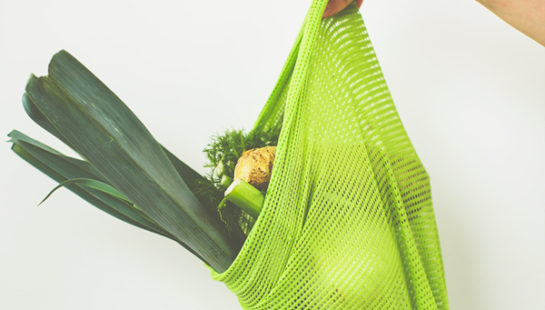Have you ever noticed how our culture applauds us when we accumulate? Move into a bigger home, buy a second car, take an overseas holiday and people will say we are ‘getting ahead.’ But are we? Is the accumulation of things and experiences a sign of success in the eyes of God or does the good life lie somewhere else?
What’s The Problem With ‘Stuff’?
We never truly realise how much ‘stuff’ we own until we’re faced with moving homes. When I first moved out of home, I packed everything I owned into just two standard packing boxes. But since then, every time I’ve moved, I seem to have more stuff. In my last move, our family needed 100 standard packing boxes and a giant removalist van. It just seems like I keep acquiring more and more stuff. And I’m not alone.
A McCrindle study found that around four in five Australians report feeling good when they buy something new despite the majority also believing that Australia’s consumption habits are having a negative impact on society. And it’s true. Every year, the waste Australians generate is growing at twice the rate of our population.
While we feel like we have little say into how much a home costs, people are spending more on the things that go in homes. Household furnishings. Recreational equipment. Clothes. Cars. You name it—we’re consuming more of it.
In his book Enough: Breaking Free From the World of Excess, John Naish says, ‘We have created a culture that has one overriding message—we do not yet have all we need to be satisfied. The answer, we are told, is to have, see, be and do even more. Always more.’ We’re consuming more but not all the happier because of it.
Consuming More Hasn’t Made Us Happier
Consumerism is a lifestyle in which we seek more things and more experiences in the belief they will make happier. But the promise is a lie. Research suggests that additional consumption has little impact on our happiness. In countries where people are able to meet their basic life needs, the link between consumption and happiness is weak. Moreover, as consumption levels rise, life satisfaction tends to remain constant. There appear to be two reasons for this.
First, people have a default happiness level to which we continually return. The loss of a job might drag our feelings of happiness down for a time, while a promotion might push our happiness levels up. But these upward and downward swings tend to be temporary. Over time we return to our default level.
Second, we tend to measure our well-being relative to others. When we enjoy the same standards of living as our peers, we feel satisfied and when we don’t, we feel we are missing out. So, we consume more to keep up with everyone around us. But as long as our position relative to others remains constant, all that extra consumption does little to improve our sense of well-being.
What Does The Bible Say About ‘Stuff’?
This makes me think of the story that Jesus tells of the Rich Young Ruler in Luke 12:13–21. The rich man is foolish because he orients his life around his own comfort rather than God’s vision for him and his community. And after exposing the rich fool, Jesus says this in Luke 12:22–34, “Therefore I tell you, do not worry about your life, what you will eat; or about your body, what you will wear. For life is more than food, and the body more than clothes. . . Who of you by worrying can add a single hour to your life? Since you cannot do this very little thing, why do you worry about the rest. . . ? For the pagan world runs after all such things, and your Father knows that you need them. But seek his kingdom, and these things will be given to you as well.” Jesus instructs his followers to “seek his kingdom”. But what is the kingdom of God?
The Antidote To ‘Stuff’? The Kingdom Of God
The kingdom of God was at the centre of Jesus’ teaching. Jesus picks up Old Testament hopes that a time would come when God would set the world right. When this happened God would be known and served by all; injustice, oppression and violence would give way to communities marked by equity, justice and love and where everyone has sufficient means to meet their needs; and the creation itself would be healed of all that harms. In proclaiming this future, the Old Testament prophets did not imagine us leaving this world for an immaterial realm but spoke of the time God would remake the existing world. For a good example see Isaiah 65:17–25.
It is the creation of this kind of world that Jesus refers to when he speaks of “the kingdom of God.” What was dramatically new was Jesus’ claim that the kingdom of God had already begun in his ministry. Through him, God’s reordering of the world had started—people were being restored to right relationship with God, their bodies were being healed, the injustices of the age were challenged, and a new community marked by love, equity and justice was being formed. This kind of reordering of the world would continue until his return, upon which the reordering would be made complete.
What Does This Mean For Me?
So, what does this mean for me and all my stuff? If we truly believe that the kingdom of God is here, and we—as God’s people—are his kingdom workers; then we have a part to play in continue Jesus’ kingdom work until his return. It means bringing healing instead of destruction. Challenging injustice instead of turning a blind eye. Living our lives as marked by love, equity and justice. This means letting go of the world’s obsession with living for collecting stuff. And making it our mission to live for God’s kingdom.
This article is an adapted excerpt from Scott Higgins’ book, The End of Greed. To learn more about putting an end to greed, download the End of Greed Bible Study now.


 Chantelle Mayo
Chantelle Mayo
